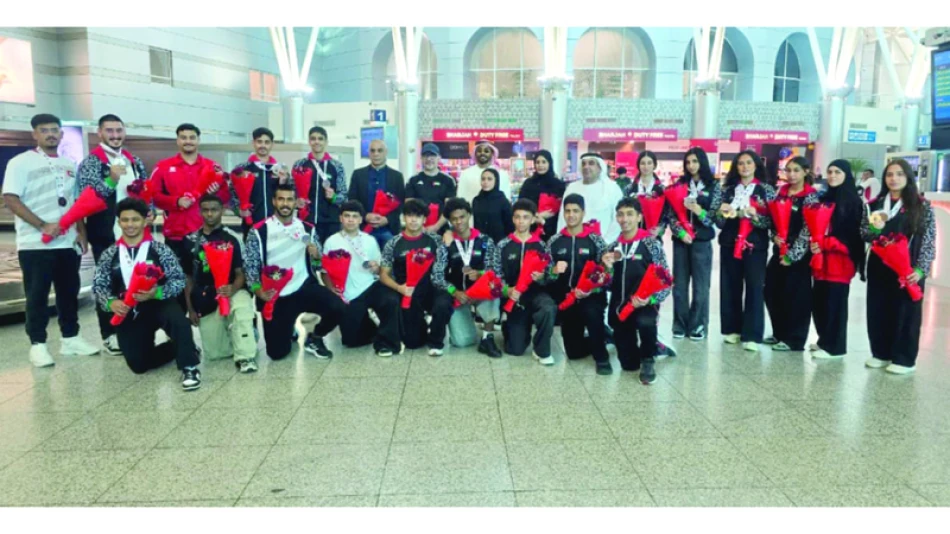
Emirati Karate Superstars Dominate West Asia Championships with 12 Medals
UAE Karate Team Sweeps West Asia Championship with Strategic Medal Haul
The UAE national karate team has returned home with an impressive collection of 12 medals from the West Asia Championship in Amman, marking a decisive regional performance that positions the Emirates as a rising force in Asian martial arts competition. The medal tally—three gold, three silver, and six bronze—represents more than individual achievement; it signals the UAE's systematic investment in sports excellence as part of its broader soft power strategy.
Women Lead the Charge in Combat Categories
Female athletes dominated the gold medal count, particularly in the kumite (sparring) divisions. Nada Khamis secured gold in the 61kg category, while Malak Al Haj and Shaikha Al Yafei claimed victories in the junior women's 48kg and over-66kg divisions respectively. This female-led success reflects the UAE's progressive approach to women's sports participation, contrasting sharply with regional neighbors where female athletic participation remains limited.
Shaikha Al Yafei's performance deserves particular attention—she not only won gold in kumite but also claimed silver in kata (forms), demonstrating the technical versatility that international competition increasingly demands.
Building Momentum Through Strategic Competition
The West Asia Championship results follow directly from the team's 12-medal performance at the preceding Arab Championship, also held in Jordan. This back-to-back success suggests deliberate preparation and peaking strategy rather than isolated victories.
The men's team contributed significantly to the bronze medal count, with Muhammad Al Kindi, Kareem Rami, Abdul Ghani Muhammad, and Zaid Khudair all placing on the podium. While lacking the gold medal breakthrough of their female counterparts, these results indicate depth across weight categories—a crucial foundation for sustained international competitiveness.
Regional Sports Diplomacy in Action
Jordan's hosting of both the Arab and West Asia championships reflects the kingdom's strategy of positioning itself as a neutral sporting hub in a politically complex region. For the UAE, strong performances on Jordanian soil carry diplomatic weight beyond the medals themselves, reinforcing bilateral ties through cultural exchange.
The 10-nation West Asia field likely included traditional karate powers like Iran and Iraq, making the UAE's medal count particularly significant. Unlike individual Gulf states that focus heavily on a single sport, the Emirates continues diversifying its competitive portfolio across multiple disciplines.
Investment Returns and Future Implications
These results validate the UAE's substantial investment in martial arts infrastructure and coaching expertise. The country has systematically recruited international coaches and established training centers that mirror successful models from Japan and European karate strongholds.
More strategically, karate's inclusion in Olympic competition makes these regional victories potentially valuable for Paris 2024 and Los Angeles 2028 qualification scenarios. The UAE's National Olympic Committee has prioritized sports where smaller nations can compete effectively against traditional powers—karate fits this profile perfectly.
The timing also supports the UAE's broader sports calendar, with these championships serving as preparation for the Asian Games and other continental competitions where medal prospects carry greater international recognition.
Most Viewed News

 Sara Khaled
Sara Khaled






